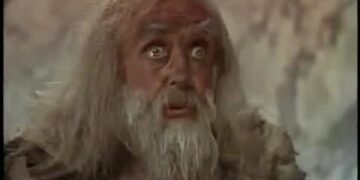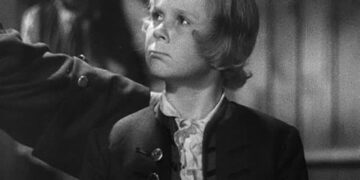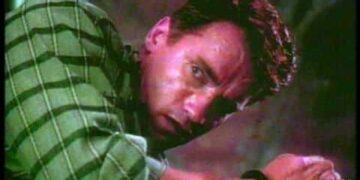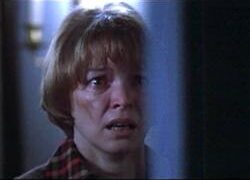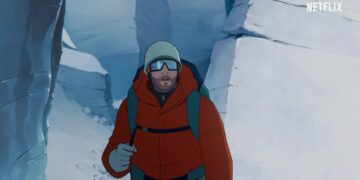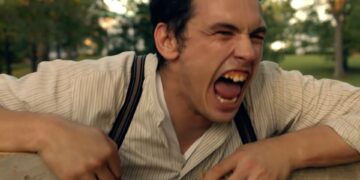José Saramago’s 1995 novel, “Blindness,” is a profound exploration of societal collapse, human nature, and the resilience of the human spirit. It tells the story of an unnamed city that is suddenly plagued by an epidemic of blindness, leaving its inhabitants to grapple with the terrifying implications of their newfound disability. The novel was adapted into a film by Brazilian director Fernando Meirelles in 2008, starring Julianne Moore, Mark Ruffalo, and Alice Braga.
This comprehensive guide will delve into the plot, themes, and characters of both the novel and film adaptation, as well as explore the real-world settings, memorable quotes, and unique soundtrack. We’ll also discuss author José Saramago’s life and work, address the controversy surrounding the story, and provide recommendations for fans of “Blindness.”
Book Summary: Exploring the Plot and Themes of “Blindness”
“Blindness” begins with a man suddenly going blind while driving home from work. His blindness is characterized by a white blindness instead of the typical darkness. As the epidemic of blindness spreads throughout the city, the government responds by quarantining the blind in an abandoned mental hospital. Among the quarantined is a woman, the wife of an ophthalmologist, who has inexplicably retained her sight.
The novel explores the themes of human nature, survival, and morality as the quarantined blind individuals struggle to navigate their new reality. The lack of names for characters and locations adds to the universality of the story, emphasizing the idea that this could happen anywhere, to anyone. Throughout the novel, the characters are forced to confront the darkest aspects of human nature, as well as the innate desire for connection, love, and hope.
Movie Summary: Comparing the Novel and Film Adaptation
Fernando Meirelles’ film adaptation of “Blindness” largely adheres to the original plot of the novel, though there are some differences in pacing and structure. The film places a greater emphasis on the relationship between the ophthalmologist’s wife, played by Julianne Moore, and her husband, played by Mark Ruffalo. Additionally, the film includes several scenes that are not present in the novel, such as flashbacks to the characters’ lives before the epidemic.
While the film adaptation is visually striking and features strong performances from its cast, some critics argue that it lacks the same emotional depth and philosophical exploration as the novel. Nevertheless, the film serves as an engaging and thought-provoking adaptation of Saramago’s work.
A Parent’s Guide to “Blindness”: Content Warnings and Age-Appropriateness
“Blindness” is a deeply disturbing and intense story, both in its novel and film forms. It contains graphic depictions of violence, sexual assault, and the breakdown of societal norms. As a result, it is not a suitable story for young readers or viewers.
For parents considering whether to introduce their children to “Blindness,” it is recommended they read or view the story themselves first to determine its appropriateness. The novel and film are best suited for mature readers and viewers who can handle the intense subject matter and themes.
Setting the Scene: When and Where “Blindness” Takes Place
One of the most striking aspects of “Blindness” is its lack of specificity regarding its setting. The story takes place in an unnamed city, and the characters are not given names, only descriptions of their roles or professions, such as “the doctor’s wife” or “the first blind man.” This deliberate vagueness adds to the universality of the story, creating a sense of unease and disorientation that mirrors the experiences of the characters.
The timeline of the novel is also ambiguous, though it is generally assumed to take place in the present day or near future. The lack of clear temporal and spatial markers serves to heighten the sense of uncertainty and chaos that permeates the narrative.
Film Locations: Exploring the Real-World Settings of the Movie
Although the novel does not specify a location for its setting, the film adaptation of “Blindness” was primarily shot in Sí£o Paulo, Brazil, and Montevideo, Uruguay. These urban environments serve as a fitting backdrop for the story, providing a sense of anonymity and disorientation that reflects the characters’ experiences.
Several key locations in the film include the abandoned mental hospital where the blind are quarantined, which was filmed at a former psychiatric hospital in Uruguay, as well as the city streets and buildings where the epidemic spreads and society breaks down.
Who’s Who: Key Characters in “Blindness”
“Blindness” features a diverse cast of characters, each grappling with the implications of the epidemic in their own way. Some of the key characters include:
- The first blind man: The initial victim of the blindness epidemic, his experience sets the stage for the events that follow.
- The doctor: An ophthalmologist who is among the first to be quarantined. He is unable to understand the cause of the blindness and eventually succumbs to it himself.
- The doctor’s wife: The only character who retains her sight throughout the story, she becomes a vital figure in the lives of the quarantined characters and serves as their protector and guide.
- The girl with dark glasses: A young woman who was already visually impaired before the epidemic. She forms a close bond with the other characters and provides a unique perspective on the situation.
- The old man with the black eyepatch: An elderly man who offers wisdom and guidance to the other characters, despite his own struggles with blindness.
Memorable Quotes from the Novel and Film
Both the novel and film adaptation of “Blindness” are filled with memorable quotes that underscore the story’s themes and emotional resonance. Some standout quotes include:
- “I don’t think we did go blind, I think we are blind. Blind but seeing. Blind people who can see, but do not see.” – José Saramago, “Blindness”
- “If I’m sincere today, what does it matter if I regret it tomorrow?” – José Saramago, “Blindness”
- “The only way to fight the plague is with decency.” – Fernando Meirelles’ “Blindness”
- “Perhaps only in a world of the blind will things be what they truly are.” – José Saramago, “Blindness”
The Soundtrack by Uakti: A Unique Audio Experience
The film adaptation of “Blindness” features a haunting and atmospheric soundtrack composed by Brazilian musical group Uakti. Known for their innovative use of unconventional instruments and materials, Uakti’s music provides a fitting complement to the film’s visuals and themes.
The soundtrack, which includes both original compositions and adaptations of classical pieces, serves to heighten the tension and emotion of the film, creating a memorable and evocative audio experience for viewers.
Curiosities and Trivia about “Blindness”
“Blindness” has inspired numerous adaptations, reinterpretations, and discussions, leading to a wealth of interesting facts and trivia. Some notable curiosities include:
- José Saramago was awarded the Nobel Prize in Literature in 1998, three years after the publication of “Blindness.” The novel is considered one of his most significant works.
- In 2010, “Blindness” was adapted into a stage play by Simon Stephens, which premiered at the Almeida Theatre in London.
- The film adaptation of “Blindness” was screened as the opening night film at the 61st Cannes Film Festival in 2008.
- Author José Saramago makes a cameo appearance in the film adaptation as the man who discovers the first blind man’s abandoned car.
Tips for Cosplay: Dressing Like Your Favorite “Blindness” Characters
Dressing up as characters from “Blindness” presents a unique challenge, given the lack of names and minimal physical descriptions provided in the novel. However, this ambiguity also allows for a great deal of creativity and interpretation when creating your cosplay look.
For the doctor’s wife, consider wearing a simple, functional outfit that reflects her role as a protector and guide. A white or light-colored outfit, paired with a red blindfold to symbolize her sight amidst the blindness, could be an effective choice.
For the girl with dark glasses, incorporate her signature accessory into your look, along with clothing that reflects her youth and vulnerability.
For the old man with the black eyepatch, consider wearing an eyepatch and dressing in clothing that conveys age and wisdom.
Don’t forget to incorporate props that represent the characters’ experiences, such as a white cane or walking stick.
José Saramago: A Brief Biography and Overview of His Works
José Saramago (1922-2010) was a Portuguese novelist, playwright, and journalist, known for his distinctive writing style and thought-provoking exploration of human nature. Born into a family of rural laborers, Saramago’s early life was marked by poverty and hardship. Despite these challenges, he went on to become one of the most celebrated and influential writers of his time.
In addition to “Blindness,” Saramago’s notable works include “The Gospel According to Jesus Christ,” “The Stone Raft,” and “All the Names.” His writing is characterized by its philosophical depth, unique narrative voice, and blending of fantastical elements with stark realism.
Understanding the Ending of “Blindness”
The ending of “Blindness” offers a glimmer of hope amidst the darkness and despair that permeate the story. After the epidemic begins to subside and the characters regain their sight, they are left to rebuild their lives and society. While the trauma of their experiences will undoubtedly stay with them, the ending suggests that it is possible to find hope and redemption even in the face of unimaginable suffering.
The conclusion of the novel also serves to reinforce its central themes of human resilience, the importance of connection, and the potential for beauty and goodness even in the darkest of times.
Possibilities for a Remake, Sequel, or Spin-Off
Given the enduring popularity and critical acclaim of “Blindness,” it is not surprising that there has been speculation about potential remakes, sequels, or spin-offs. While there are no concrete plans for any such projects at this time, the rich thematic material and complex character dynamics present in the novel and film provide ample opportunity for further exploration and reinterpretation.
Whether through a retelling of the story from a different perspective or a continuation of the characters’ journeys, there is undoubtedly potential for new and exciting adaptations of “Blindness” in the future.
Other Media by Fernando Meirelles: Exploring His Filmography
Fernando Meirelles is a Brazilian film director, producer, and screenwriter, known for his visually stunning and emotionally complex films. In addition to “Blindness,” his notable works include “City of God,” a gritty and powerful exploration of crime and poverty in Rio de Janeiro, and “The Constant Gardener,” a political thriller based on the novel by John le Carré.
Meirelles’ films are characterized by their striking visuals, strong performances, and thought-provoking themes, making them a must-watch for fans of “Blindness” and those interested in contemporary world cinema.
Similar Media to “Blindness”: Recommendations for Fans
If you enjoyed “Blindness” and are looking for similar stories that explore themes of societal collapse, human nature, and survival, consider the following recommendations:
- “The Road” by Cormac McCarthy: A haunting and poignant novel about a father and son’s journey through a post-apocalyptic landscape.
- “Station Eleven” by Emily St. John Mandel: A novel that weaves together multiple narratives to explore the connections between art, memory, and survival in the wake of a devastating pandemic.
- “Children of Men” (film): A dystopian film directed by Alfonso Cuarón, based on the novel by P.D. James, that explores a world in which humanity has become infertile and society is on the brink of collapse.
Other Works by José Saramago: Expanding Your Literary Horizons
If you enjoyed “Blindness” and are interested in exploring more of José Saramago’s work, consider the following novels:
- “The Gospel According to Jesus Christ”: A controversial and thought-provoking retelling of the life of Jesus, questioning traditional religious narratives and exploring themes of faith, love, and humanity.
- “The Stone Raft”: A fantastical tale of the Iberian Peninsula breaking off from Europe and drifting across the Atlantic Ocean, exploring themes of identity, nationalism, and human connection.
- “All the Names”: A novel about a lowly clerk in a bureaucratic registry who becomes obsessed with an unknown woman, leading him on a journey of self-discovery and existential questioning.
Book Club Discussion Questions for “Blindness”
“Blindness” is a powerful and thought-provoking story that is sure to spark meaningful conversations among book club members. Some discussion questions to consider include:
- What do you think the white blindness in the novel symbolizes?
- How does the lack of names for characters and locations shape your reading experience?
- How does the doctor’s wife’s sightedness affect her relationships with the other characters and her role in the story?
- What do you think the novel is saying about human nature and our capacity for both cruelty and kindness?
- How does the relationship between the girl with dark glasses and the other characters develop throughout the story?
Addressing the Controversy: Protests from Dr. Marc Maurer
The release of the film adaptation of “Blindness” was met with controversy and protest, particularly from Dr. Marc Maurer, the then-president of the National Federation of the Blind. Dr. Maurer argued that the story perpetuated harmful stereotypes about blind people, portraying them as helpless, dependent, and immoral.
While some critics and viewers agree with Dr. Maurer’s concerns, others argue that the story is not meant to be a realistic portrayal of blindness but rather a metaphorical exploration of human nature and societal collapse. The controversy surrounding “Blindness” raises important questions about the representation of disability in literature and film and the responsibilities of artists in shaping public perceptions.
Video Games Inspired by “Blindness”
While there are no direct video game adaptations of “Blindness,” the novel’s themes and concepts have inspired several games that explore the experience of blindness and the challenges it presents. Some examples include:
- “Beyond Eyes”: A game in which players control a blind girl named Rae as she navigates an unfamiliar world using her other senses to guide her.
- “Perception”: A first-person narrative horror game in which players assume the role of a blind woman who uses echolocation to explore a haunted mansion.
These games, along with others that focus on the experiences of blind individuals, offer a unique and immersive way to engage with the themes and ideas present in “Blindness.”
A Travel Guide to Visit “Blindness” Locations in Real Life
For fans of “Blindness” interested in visiting the real-world locations featured in the film adaptation, consider a trip to Sí£o Paulo, Brazil, and Montevideo, Uruguay. These vibrant and diverse cities offer a wealth of cultural and historical attractions, as well as the opportunity to explore the urban environments that served as the backdrop for the film.
When planning your trip, be sure to research specific filming locations and consider guided tours that may offer insights into the production of “Blindness” and the significance of these settings in the story.
Conclusion: The Lasting Impact of “Blindness” in Literature and Film
“Blindness” is a powerful and thought-provoking story that continues to resonate with readers and viewers more than two decades after its publication. Its exploration of human nature, societal collapse, and the resilience of the human spirit offers a unique and challenging perspective on the world and our place within it.
Whether experienced through the novel or film adaptation, “Blindness” is a story that will stay with you long after you’ve turned the final page or the credits have rolled.


